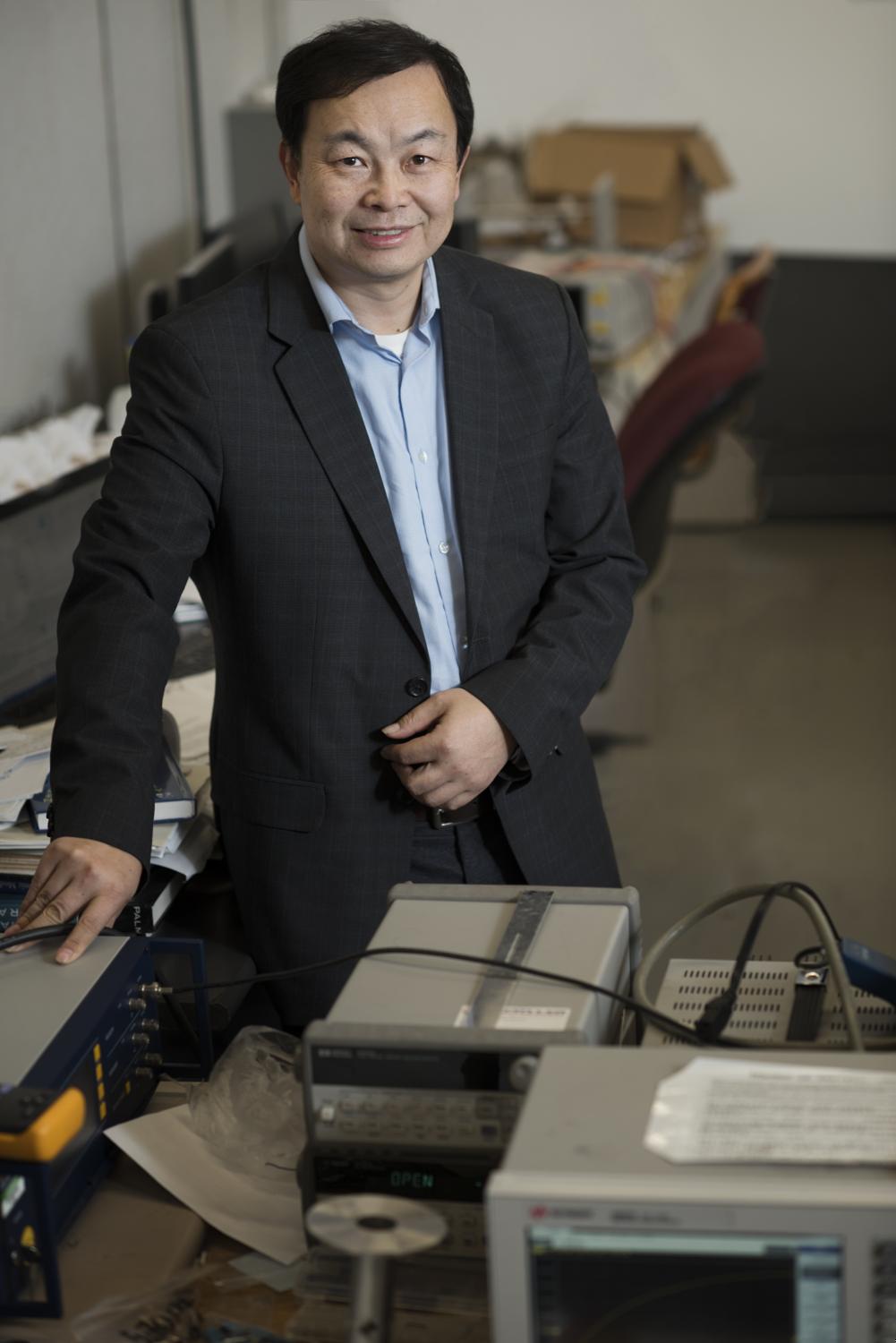
DENTON (UNT), Texas – A University of North Texas mechanical engineering professor is helping to advance technologies for recycling used nuclear fuel (UNF).
As the United States continues to explore ways of offsetting climate change and the domestic reliance on fossil fuel energy, the U.S. Department of Energy (DOE) is turning to nuclear fuel and awarded $38 million in funding to support projects that advance UNF technologies.
Professor Haifeng Zhang in the College of Engineering is leading one of 12 research projects recently funded by the DOE initiative. Zhang will use the $2.7 million grant to develop a self-powered, wireless sensor that provides long-term, real-time monitoring of high-temperature molten salt density and level. This will enable accurate safeguarding and monitoring of the electrochemical processing of UNF.
“There is a lot of wasted or spent fuel in the United States,” Zhang said. “More than 90% of energy remains in spent fuel rods in the form of unused fissile metals. Reprocessing is a means of utilized the remaining energy. If we can do that, we can improve fuel utilization as well as drastically reduce the volume of the high level of radioactive waste that has been deposited where spent fuel is stored.”
Used or spent nuclear fuel is a byproduct of generating nuclear energy. The UNF is first stored in steel-lined concrete pools surrounded by water before later being placed into dry storage canisters with protective shielding. It is then stored at reactor sites across the country. However, UNF can be recycled to make new fuel and byproducts, and the clean energy created from this spent fuel would be enough to power more than 70 million homes. The U.S. doesn’t currently recycle spent nuclear fuel, but this DOE investment aims to kick off research and development for how UNF can be used in the future.
Spent fuel rods can be recycled through a process called electrorefining, in which an electrochemical process is used to extract uranium from the fuel rods. During this process, nuclear materials are dissolved into molten salt electrolytes. However, there is currently no way to monitor and measure the mass of the molten salt in real time due to the high temperatures and radiation levels. The wireless monitor Zhang is developing is meant to withstand the harsh environment and measure the density and level within the UNF storage container, which can be used to calculate the molten salt inventory.
By monitoring the mass, level and density of these nuclear materials, scientists can better understand the electrorefining process and account for these nuclear materials. This data will increase the effectiveness of the processing so that the spent fuel is recycled more efficiently, and it will increase overall confidence in the process.